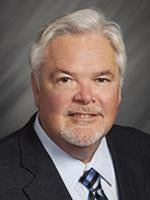People are sometimes surprised to learn that the U.S. Food and Drug Administration (FDA) and Centers for Medicare and Medicaid Services (CMS) do not coordinate their decisions on whether a medical device can be marketed and whether the government's insurance programs will pay for it. In other words, a medical device manufacturer may be thrilled to learn the FDA has found a device is "safe and effective" and can be sold in the U.S., only to learn that two of the largest insurance programs, Medicare and Medicaid, will not pay for the device because it is not "reasonable and necessary." Conversely, CMS may reimburse health care providers for the off-label use of a medical device that the FDA has not authorized.
About this time last year, FDA and CMS announced that they were considering a parallel review program through which the FDA would determine whether a medical device could be marketed and at the same time CMS would determine whether, the conditions under which, and the amounts it would pay for the use of the device nationwide (a "National Coverage Determination" or "NCD"), FDA and CMS invited public comments on their proposal and have now announced that they are launching a two-year pilot program to test the parallel review procedure for medical devices. If successful, the program could lead to similar programs for drugs and biological products.
The announcement identifies five "guiding principles" that will apply to the parallel review process:
In parallel review proceedings, both CMS and FDA will apply the same standards they would otherwise apply in reaching their decisions.
FDA and CMS will follow all statutory and regulatory requirements set forth in a memorandum of understanding that exists between them related to sharing and confidentiality of data.
A manufacturer may withdraw from, and FDA and CMS may end, a parallel review until the CMS posts a NCD tracking sheet.
FDA and CMS will keep the manufacturer's participation in a parallel review proceeding confidential unless the manufacturer consents to disclosure or itself makes the information public.
FDA and CMS expect the pilot program to be limited to three-to-five candidates per year.
The announcement states that parallel review should be limited to "truly innovative technologies" and identifies certain categories of appropriate devices. The categories include new technologies (1) for which the manufacturer has interacted with FDA for a pre-investigational device exemption (IDE) approval or has an approved IDE, (2) that require premarket approval (PMA) or a de novo petition, or (3) fall into a Part A (experimental) or Part B (investigational) Medicare benefit category and are not already subject to a NCD.
At least at a high level, FDA and CMS have identified procedures that will apply to a parallel review. Initially, the manufacturer will start the process by nominating its device for possible participation. The announcement specifies the contents of a nomination. Within 30 days of receiving the nomination, FDA and CMS will meet to consider it. After the FDA and CMS meet, they will notify the manufacturer of their decision on the nomination and, if the device is accepted, will meet with the manufacturer either in person or by phone. The FDA will then review the device according to its normal procedures. CMS will begin its review sometime after the submission of the PMA or de novo petition to FDA.
The announcement states that FDA and CMS expect medical device manufacturers to benefit from parallel review primarily in two ways. First, parallel review should shorten the time between FDA approval and CMS's issuance of a NCD setting forth coverage criteria for reimbursement for both the owner and/or operator of the device ("technical component") and for the physician or other professional services associated with the use of the device ("professional component"). Also, the manufacturer will receive earlier feedback from CMS on the evidence it needs for the NCD decision and may be able to gather the necessary data more efficiently as it is gathering the data it needs for FDA's approval. If CMS needs more evidence after FDA's approval, it may offer coverage pending development of the additional evidence, for example, as part of a post-approval study on which FDA sometimes conditions approval.
The parallel review program is not a panacea and indeed there are even downside risks to the medical device manufacturer who chooses to pursue it. A NCD is an important milestone, but technical and professional component reimbursements still must be adequate to compensate hospitals, physicians, or other healthcare providers who purchase and use the device. Further, a NCD is binding on local Medicare contractors and commercial payors are likely to follow it. If CMS's NCD decision is adverse, the coverage criteria are onerous, or the reimbursement levels are inadequate, the device may be stuck in the starting gate notwithstanding FDA's approval. A manufacturer may find itself wishing it still had the option of seeking Local Coverage Determinations one or more at a time, so that one coverage decision does not sink the product. If the NCD decision is positive, however, parallel review will offer significant benefits to the device manufacturer.





 />i
/>i

